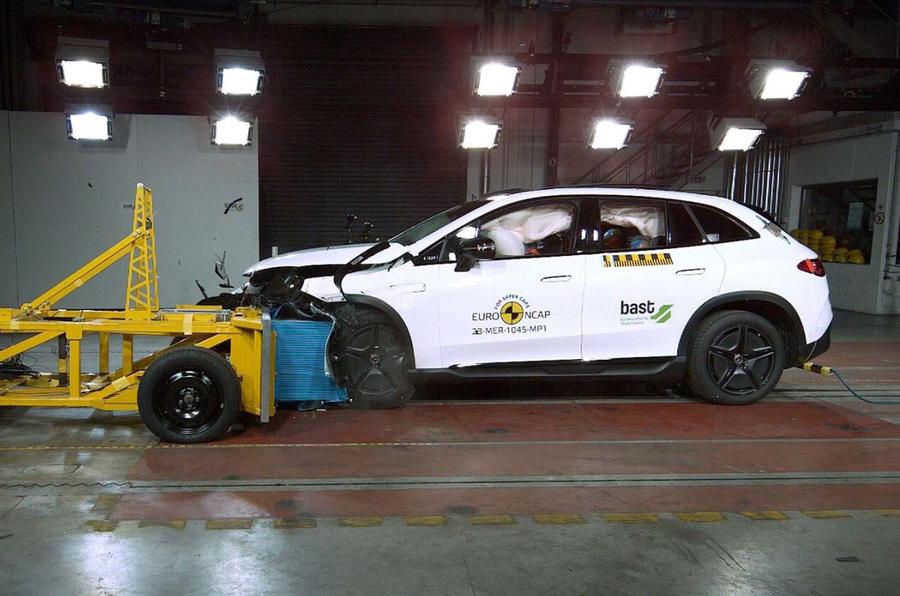Euro NCAP has said the increasing popularity of SUVs presents a "safety concern" and that its own safety rules aren't to blame for the increasing size and weight of modern cars.
The Belgium-based safety organisation has published safety ratings for 11 new cars in its final round of testing for 2023, seven of which were SUVs: the Mercedes-Benz EQE SUV, Kia EV9, Vinfast VF8, Xpeng G9, BYD Tang, BYD Seal-U and the Honda ZR-V. It also tested the BMW 5 Series, Volkswagen ID 7, Smart #3 and Hyundai Kona Electric, the latter two of which are crossovers.
The majority of the SUVs tested were awarded five stars, but Euro NCAP suggested the trend towards "heavier, more powerful, and taller cars" risks the safety of other drivers and said they're more damaging to the environment than smaller, lighter cars.
Euro NCAP secretary general Michiel van Ratingen said: "For years, Euro NCAP was accused of pushing up the weight of cars. It was thought that additional safety features meant extra mass. That was never really the case, and the increase in vehicle weight we see nowadays is certainly not safety-related. It's down to consumer preference for larger vehicles and to electrification, with ever bigger batteries being used to quell consumers’ range anxiety."
Van Ratingen later went on to explain how this trend "helps neither safety nor the environment", with safety concerns emerging from a collision scenario or when "vulnerable road users" are involved.
Despite the concerns, the latest crop of SUVs performed well in NCAP’s tests. The top-ranking Mercedes EQE SUV scored well for its safety assistance technology but was let down by its central airbag system. The larger Kia EV9 was awarded five stars due to its coverage of child safety equipment.
Also achieving the target result was the Smart #3, however it was noted that both passengers in the front seats made contact during a crash and the car wasn't equipped with child presence detection - a system that triggers a warning to the driver if a child has been left unbuckled in their seat.
Another crossover on test was the second-generation Hyundai Kona Electric, which Euro NCAP said was a "real disappointment" and "lucky to avoid three stars". Its crash avoidance and driver assistance systems were lacking and didn't represent enough of an improvement over the previous Kona.
Also falling short of the five-star mark was the Honda ZR-V. Despite being the lightest car on test, at 1589kg, it scored four stars.








Join the debate
Add your comment
"risks the safety of other drivers" what about everyone else? Pedestrians, buggies, bikes. Remember the awful wimbledon school tradegy? These things are not only incredibly dangerous to anyone outside them, their height, weight and centre of gravity mean they are much more likely to flip over if they hit a kerb or bollard.
I think we're getting ahead of ourselves with some of the innovations in car design. I read that, on the latest Tesla, the direction indicator controls are on the steering wheel spokes. Just as an experiment, I tried to practise pressing such a button to signal leaving a roundabout. The spokes were in the wrong position and rotating. Such controls such be outlawed.
These days you can't just go on the stars, you have to look at why the score. The Hyundai for example I don't doubt is a perfectly safe car, its just it didn't have enough toys that NCAP demand now. I would have no concerns to drive one and 'take my chances' of being alert enough to brake or avoid a cylist myself and not need a computer to do it for me.
Old fashioned belief. In the not-so-far future you'll travel (not needing to drive) in an autonomous car. Then you'll realize that computers make the car much safer than if driven by a much more limited response of a human being.